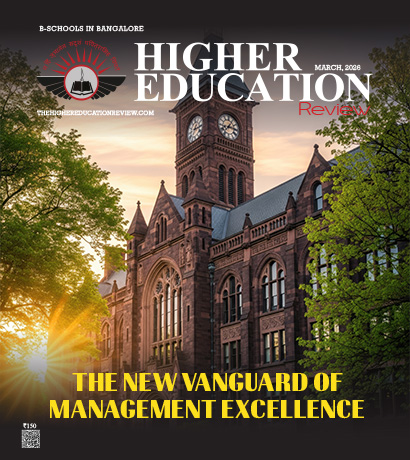Access to Higher Education key to Building Nation, says UGC Chairman
Mamidala Jagadesh Kumar, Chairman of the University Grants Commission (UGC), has suggested that students keep learning constantly, be prepared to take risks in life/career, and learn from failures in order to grow further if they want to be relevant and have access to new opportunities in a rapidly changing world.
 In his address to students at the 13th convocation of the ICFAI Foundation for Higher Education here on Friday, he said that by graduating from the university, they would be entering a non-deal world with both challenges and opportunities. The difficulties ranged from insecure economic systems to climate change and gender discrimination.
In his address to students at the 13th convocation of the ICFAI Foundation for Higher Education here on Friday, he said that by graduating from the university, they would be entering a non-deal world with both challenges and opportunities. The difficulties ranged from insecure economic systems to climate change and gender discrimination.
At the same time, there were several opportunities before them with the country becoming the fifth-largest economy in the world and the third-largest ecosystem for start-ups, the UGC Chairman said adding that the higher education system should be ready to take advantage of these opportunities by scaling up the quality of education.
The National Education Policy 2020 had set the direction to scale up the quality of education by providing personalised, individualised and learning outcome-based education, where students could excel in multi-disciplinary education, Prof. Jagadesh Kumar said. He asked the higher education institutions to invest in academic and research excellence, and develop systems that fostered freedom to carry outstanding research to meet the local and national needs.
To make it happen, the institutions had to create an environment that gave students and faculty the best possible opportunities. To remain relevant in the rapidly changing educational landscape, he asked teachers to adapt to new teaching and assessment methods.
C. Rangarajan, Chancellor of the University and former Governor of the Reserve Bank of India, stated that higher education is critical to the development of a nation. Despite significant progress in education, the country still needed to strengthen higher education by reforming it in three dimensions: access, equity, and quality.

